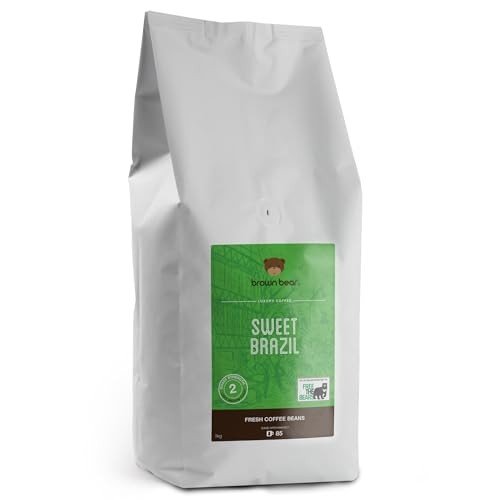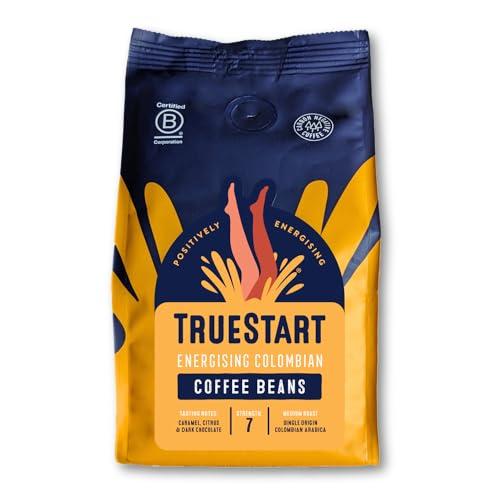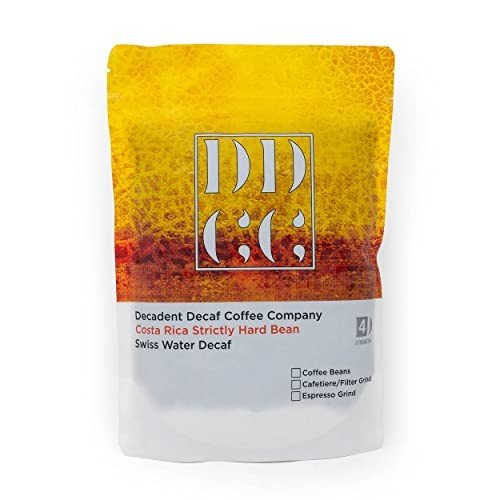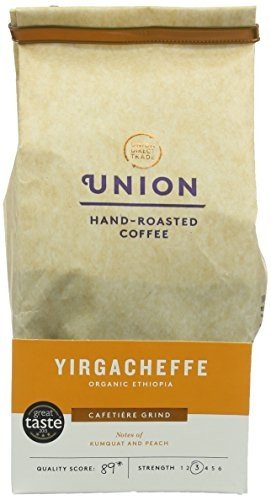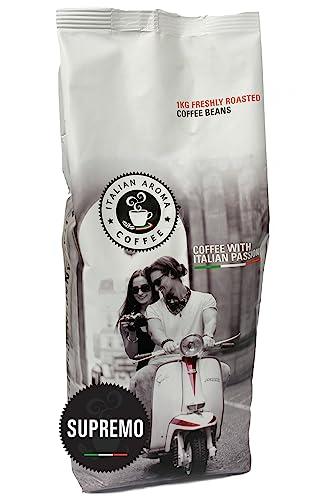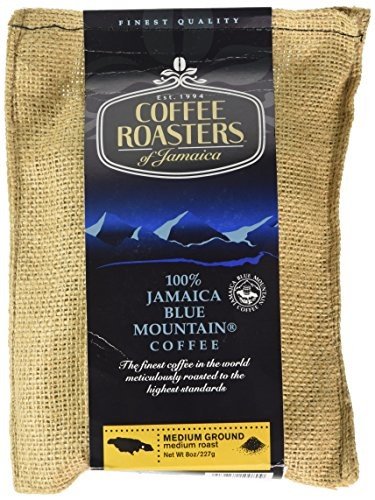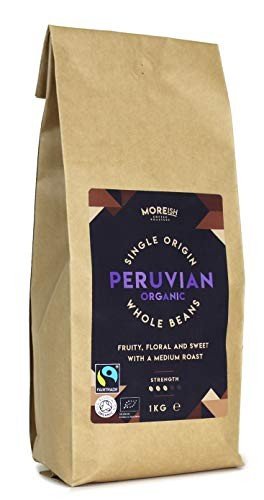Single origin coffee beans bring the unique flavors of their regions right to your cup. Each bean tells a story, showcasing the local climate, soil, and growing practices that make it special. If you’re ready to explore different tastes and aromas, this is the place to find your next favorite brew.
Single Origin Coffee Beans
Discover unique flavors from the world’s best coffee-growing regions
Product List
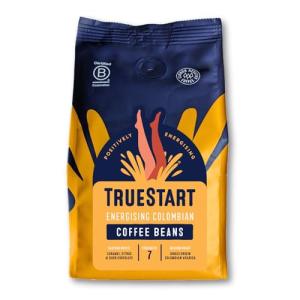
Colombian Espresso Coffee Beans
Truestart
Product Review Score
4.18 out of 5 stars
11 reviews£7.21 £6.78
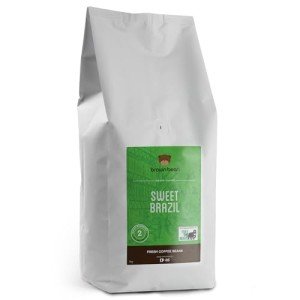
Sweet Brazil Light Roast Coffee
Brown Bear
Product Review Score
4.51 out of 5 stars
20 reviews£24.99

Brazilian Yellow Bourbon Coffee 1kg
Coffee Masters
Product Review Score
4.15 out of 5 stars
161 reviews£25.99 £24.99
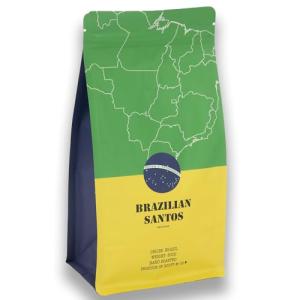
Brazilian Santos Light Roast 500g
Scott&Co.
Product Review Score
4.45 out of 5 stars
188 reviews£14.99

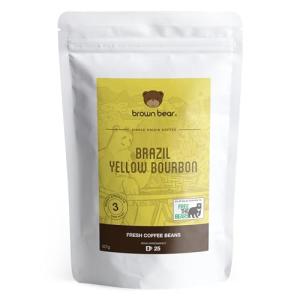
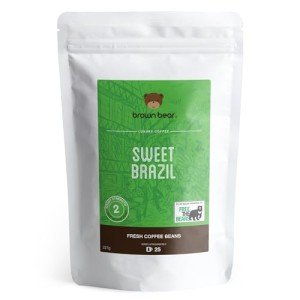
Sweet Brazil Light Roast Coffee
Brown Bear
Product Review Score
4.66 out of 5 stars
226 reviews£7.99
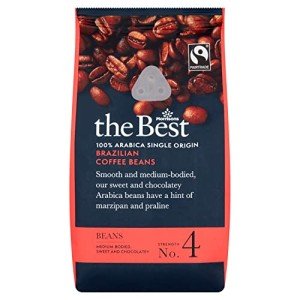
Morrisons Brazilian Coffee Beans 227g
Morrisons
Product Review Score
4.13 out of 5 stars
12 reviews£12.49
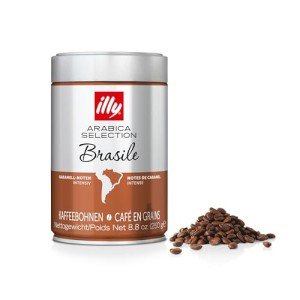
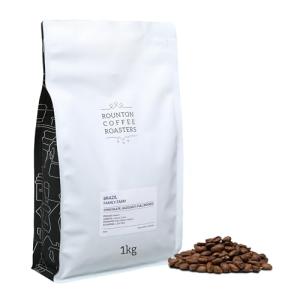
Brazilian Arabica Coffee - 1kg
Rounton Coffee
Product Review Score
4.13 out of 5 stars
127 reviews£32.50
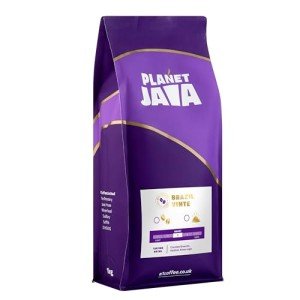
Brazil Vinte Arabica Beans 1kg
Planet Java
Product Review Score
4.21 out of 5 stars
128 reviews£19.99
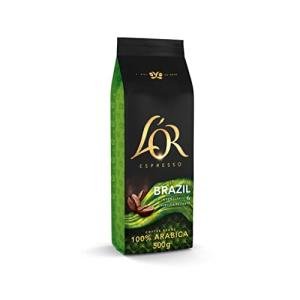
Coffee is more than just a morning ritual; it is a global phenomenon that combines rich cultural traditions, artisanal craftsmanship, and an array of flavor profiles. Among the myriad options available to coffee aficionados, single origin coffee beans have carved out a niche that highlights the individuality of geographical regions. In this blog post, we will explore what single origin coffee beans are, their benefits, how they differ from blends, and a guide to understanding their flavor profiles.
What Are Single Origin Coffee Beans?
Single origin coffee beans come from one specific region, country, or even farm. This focus allows for a distinctive taste that reflects the unique conditions of the growing environment, including the soil, climate, and elevation. Unlike coffee blends, which combine beans from various sources to create an overall flavor profile, single origin coffees celebrate the singular character of their origin.
Key Characteristics of Single Origin Coffee Beans
| Characteristic | Description |
|---|---|
| Terroir | The conditions and environment where the coffee is grown, influencing its flavor. |
| Flavor Profile | Unique flavors and aromas specific to the region due to local agricultural practices. |
| Traceability | They can be traced back to their origin, offering more transparency. |
| Freshness | Often sourced from small farms and roasted in smaller batches, ensuring freshness. |
Benefits of Single Origin Coffee Beans
-
Unique Flavors: Coffee lovers appreciate single origin beans for their distinctive and varied taste profiles, which can range from fruity and floral to earthy and nutty.
-
Transparency and Ethical Sourcing: Many single origin coffees come from small farms that practice sustainable and ethical farming methods. Knowing where the coffee comes from can enhance the experience for consumers.
-
Supporting Local Farmers: Buying single origin coffee supports local coffee growers, which can offer significant help to their communities.
-
Culinary Exploration: Each region provides a different experience, allowing coffee enthusiasts to explore and compare the unique characteristics from around the world.
Popular Single Origin Coffee Regions
Let's take a closer look at some renowned regions that produce exceptional single origin coffee beans:
| Region | Flavor Notes | Notable Varieties |
|---|---|---|
| Central America | Bright acidity, fruity | Guatemala, Costa Rica |
| South America | Nutty, chocolatey | Colombian, Brazilian |
| Africa | Berry, floral, tea-like | Ethiopian, Rwandan |
| Asia | Spicy, earthy | Sumatran, Indian Malabar |
Exploring Flavor Profiles
Understanding the flavor profiles of different regions is essential for coffee lovers. Here’s a more in-depth look at popular single origin coffee beans:
-
Ethiopian Coffee: Known for fruity and floral notes, Ethiopian coffee often features flavors of blueberry and jasmine with a bright acidity.
-
Colombian Coffee: Renowned for its balance, Colombian coffee typically exhibits smooth caramel tones, nuttiness, and chocolate flavors.
-
Sumatran Coffee: This coffee is distinguished by its rich, heavy body with earthy tones, featuring herbal or spicy notes.
-
Costa Rican Coffee: These beans are often bright and fruity, capturing flavors of citrus and tropical fruits.
How to Brew Single Origin Coffee
Before diving into different brewing methods for single origin coffees, it's essential to consider that each method can highlight distinct flavor attributes. Here are popular brewing techniques:
-
Pour-Over: This method allows for greater control over the brewing process, emphasizing the coffee's nuances.
-
French Press: Offers a heavy body and retains oils, making it ideal for showcasing the coffee's aroma and texture.
-
Espresso: A concentrated form that captures intense flavors and aromas, best for darker or bolder single origin coffees.
-
Aeropress: A versatile method that can yield various styles, from espresso-like brews to cleaner cups.
Recommended Brewing Ratios
| Brewing Method | Coffee to Water Ratio |
|---|---|
| Pour-Over | 1:15 |
| French Press | 1:12 |
| Espresso | 1:2 |
| Aeropress | 1:17 |
Frequently Asked Questions (FAQ)
1. What is the difference between single origin and blends?
Single origin coffee comes from one specific region or farm, while blends are a combination of beans from multiple sources to achieve a certain flavor profile.
2. How do I choose the best single origin coffee?
Consider your preferred flavor profiles, the brewing method, and exploring various regions. Reading reviews and asking for recommendations can also guide your selection.
3. Is single origin coffee better than blended coffee?
This depends on personal preference. Some enjoy the unique characteristics of single origin coffee, while others might prefer the balanced flavors of blends.
4. How long does single origin coffee last?
Whole beans can last 2-4 weeks after roasting when sealed properly. Ground coffee, however, should be consumed within a week for optimal freshness.
5. Can I brew single origin coffee in the same way as other coffees?
Yes! However, adjusting brewing parameters, such as grind size and extraction time, may enhance the unique characteristics of single origin coffee.
Single origin coffee beans offer a delightful journey through flavors, cultures, and sustainability. They stand out in the world of coffee for their individual characteristics, supporting local farmers and promoting ethical sourcing. By diving into the world of single origin coffee, consumers not only enhance their palate but also contribute positively to the global coffee economy. Whether you're a seasoned barista or just beginning your coffee journey, exploring single origin coffees can open a world of flavor possibilities that are well worth the venture.
